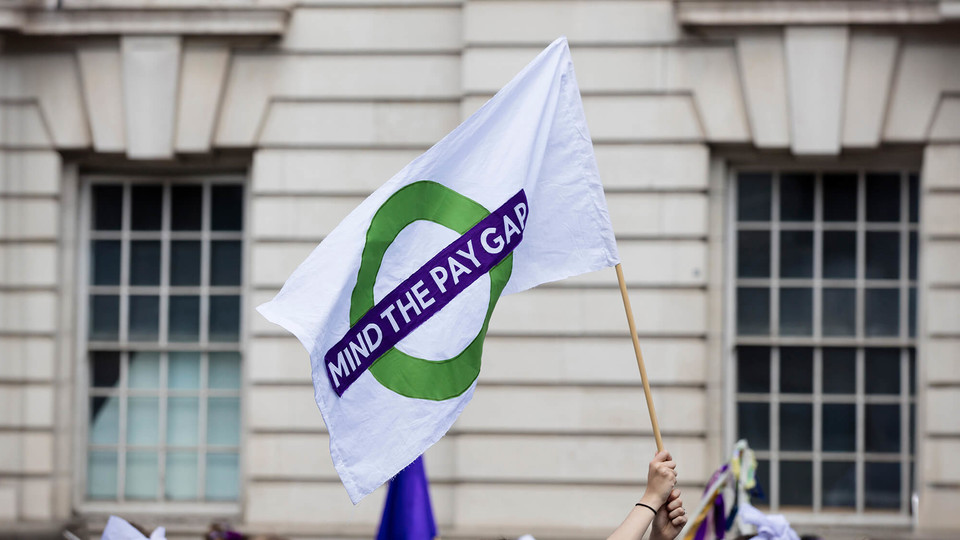
Pay Day
Why Companies Are Actually Doing Investors A Favor By Not Paying Dividends
Based on research by Gustavo Grullon, James P. Weston, Bradley Payne and Shane Underwood
Why Companies Are Actually Doing Investors A Favor By Not Paying Dividends
- The number of companies paying dividends has dropped dramatically in the past 30 years.
- But companies are making net payments — through other types of cash disbursements, including share repurchases — that are as high or higher than they were in the 1970s.
- By shifting cash distributions to repurchases instead of dividends, firms moved towards a policy of minimizing the tax burden on their investors.
“The only thing that gives me pleasure is to see my dividend coming in,” oil magnate John D. Rockefeller once said. Rockefeller wasn’t the only investor to cherish the portion of corporate earnings that companies have historically divided among their shareholders. The dividends a company paid were once the most reliable public demonstration of its financial health. During the dark economic days of the 1930s, federal legislation began requiring companies to conduct business with more transparency. Before that, dividends acted as one of the few visible ways investors could judge a company’s success.
But a dramatic drop in the number of firms paying dividends from 1978 to 1999 has posed a puzzle to analysts who study capital markets. Experts have long believed that the decline in dividend payments reflected the transitory nature of company profits. But Rice Business scholars recently discovered a conundrum: Large firms with higher earnings are the least likely to pay dividends. These companies aren’t crippled by costly external financing, and they don’t need to hoard cash for investment purposes.
So why aren’t they paying out?
Dividend levels differ enormously from company to company. Some of the fastest growing companies, such as internet startups, tend not to pay dividends at all. As these companies swiftly expand, they plow profits back into their businesses. But for older, more established companies, stockpiling profits or funneling them back into the firm may not be the wisest decision. Experts expect more mature, established companies to pay dividend yields above the market average.
Rice Business Professors Gustavo Grullon and James P. Weston, along with Bradley S. Paye, now a finance professor at Virginia Tech, and Shane Underwood of Baylor, decided to approach the puzzle by looking at other forms of paying out. They examined whether net cash distributions to equity holders, including repurchasing shares and issuing stock, have declined similarly — and when they looked at these figures, a very different picture emerged. They found no decline. In fact, they discovered that net payout yields have increased over time.
Their research showed that many firms were positive net payers even if they weren’t paying dividends. And many companies that paid dividends turned out not to be positive net payers. Scholars determined that although dividend payments have fallen, companies are as likely to make net payments today as they were in the 1970s. These results proved consistent across a number of methods of measurement. In fact, the findings suggest that corporations currently distribute more cash to their shareholders than in the past.
The researchers studied payouts by publicly-traded domestic firms with a median age of 16 years. Young firms are expected to have a greater need to save cash than established ones, and since publicly-listed companies tend to be younger and less profitable than they were 30 years ago, researchers expected that the number of companies returning cash to shareholders would drop during this time period. But the scholars found the opposite. They discovered that the number of firms with low retained earnings that distribute cash to equity holders actually has increased. What’s more, they found that firms were shifting cash distributions to repurchases instead of dividends — thereby easing the tax burden on investors who would have paid higher penalties on dividends.
By looking at net payouts — such as repurchased shares and stock issues — instead of just dividends, the researchers came to an entirely novel understanding of payout policy. For example, the fact that firms with relatively low earnings were actually more likely to return cash to shareholders than they were in the 1970s may reflect the loosening of restrictions on repurchases that have facilitated the use of stock buybacks among smaller, less mature firms.
Their conclusions also have major implications for tax policy. Proponents of the Jobs and Growth Tax Relief Reconciliation Act of 2003, for example, argued that in the wake of the corporate scandals of 2001 and 2002, firms needed encouragement to return cash to shareholders. The act, commonly known as the Bush Tax Cuts, lowered taxes on dividends and capital gains, among other measures. As the researchers note, proponents believed the legislation would “jumpstart a staggering economy, jolt stock prices upward, and release a cascade of corporate cash into the pockets of upscale consumers.”
But those who made such arguments presumed that firms were less likely to distribute cash to investors than they had been in the past, and that altering the tax code could help reverse this trend. The research suggests otherwise. Firms were just as likely to return cash in 2003 as they were in 1978. A diehard dividend fan like Rockefeller might find himself waiting a long time at the mailbox today for an envelope that never arrives, but investors are still getting payouts — more now than ever before.
James P. Weston is a Harmon Whittington Professor of Finance
Gustavo Grullon is a Jesse H. Jones Professor of Finance at the Jones Graduate School of Business at Rice University.
To learn more, please see: Grullon, G., Paye, B., Underwood, S., and Weston, J. P. (2011). Has the Propensity to Pay Out Declined? Journal of Financial and Quantitative Analysis, 46(1), 1-24.
Never Miss A Story


